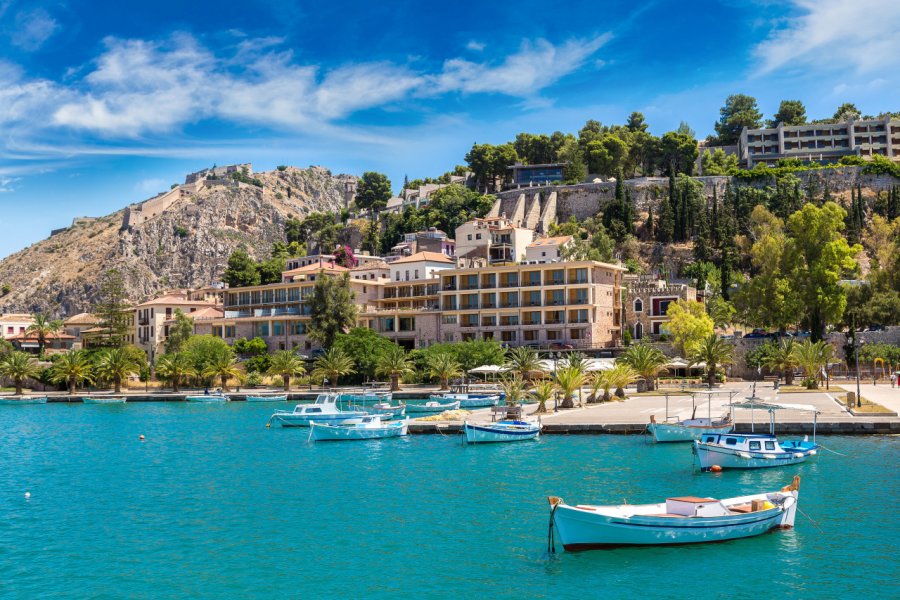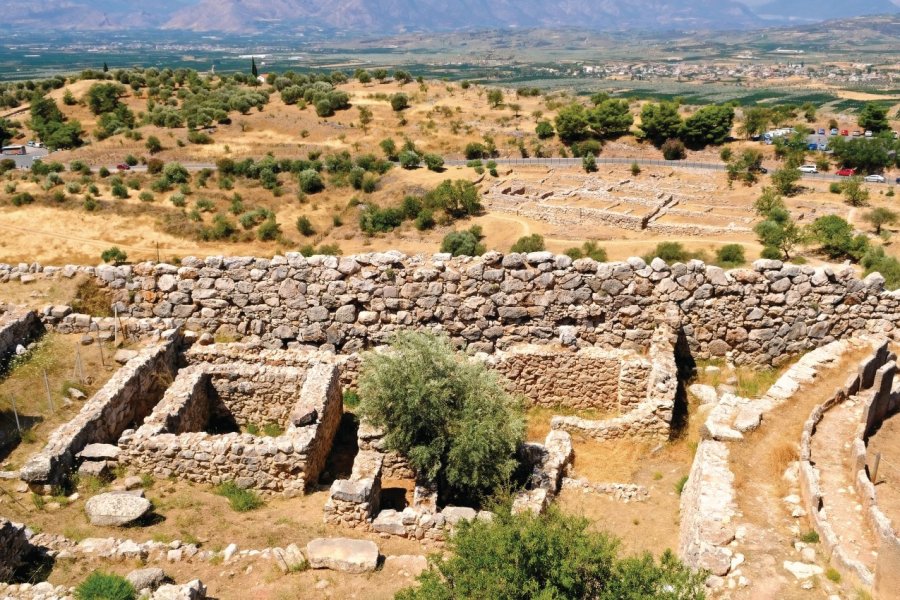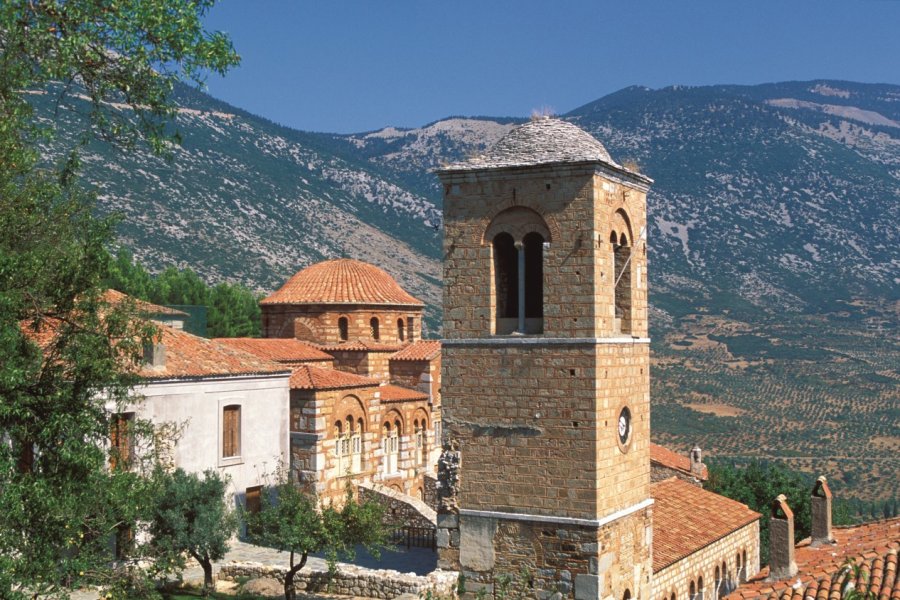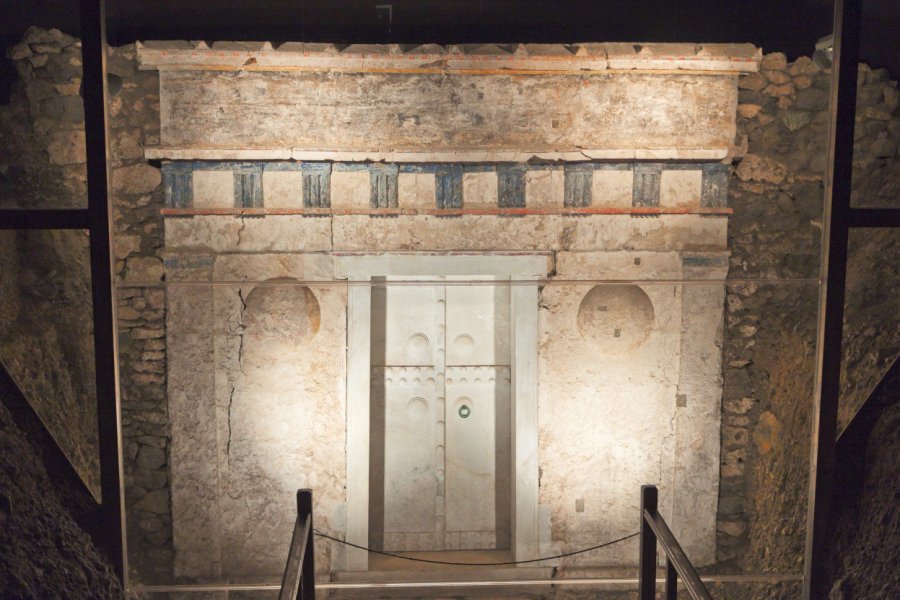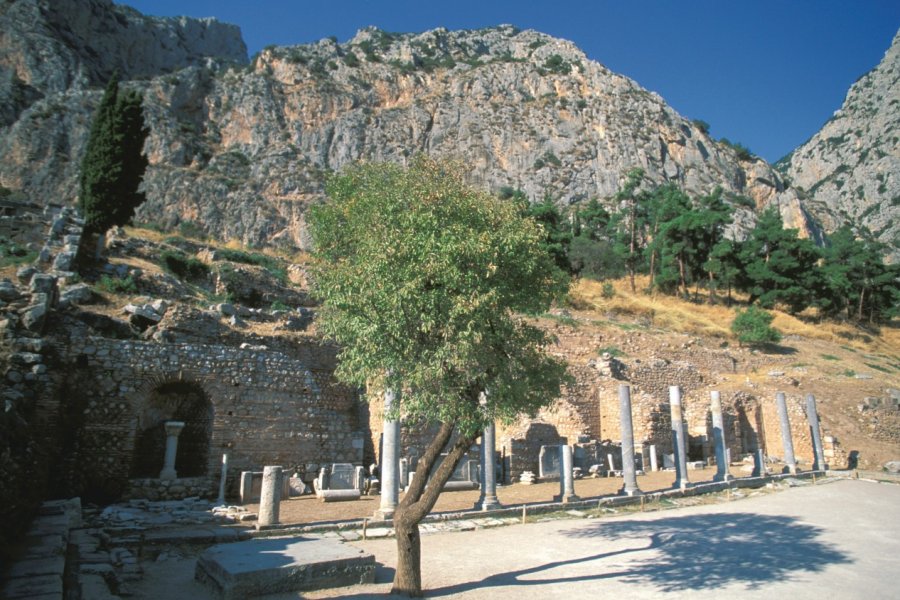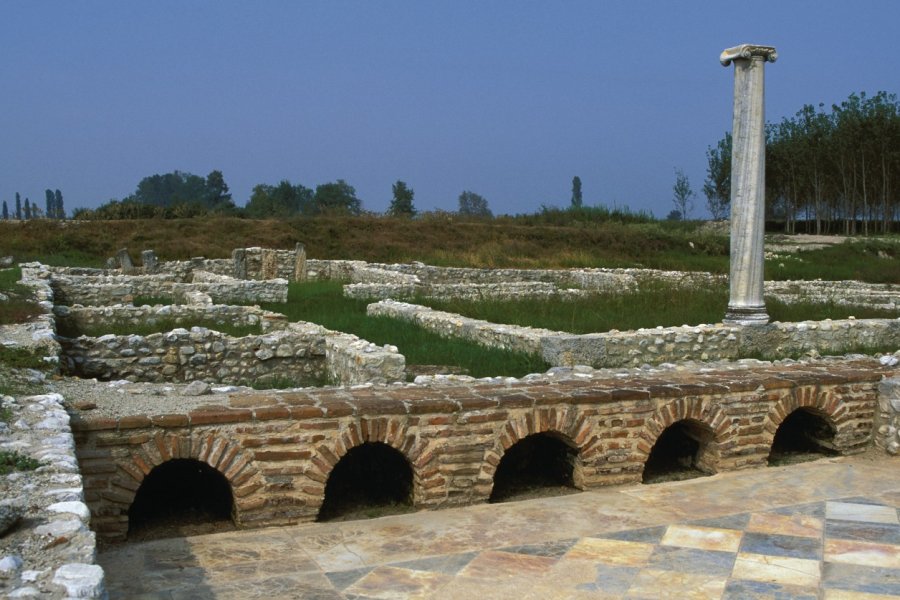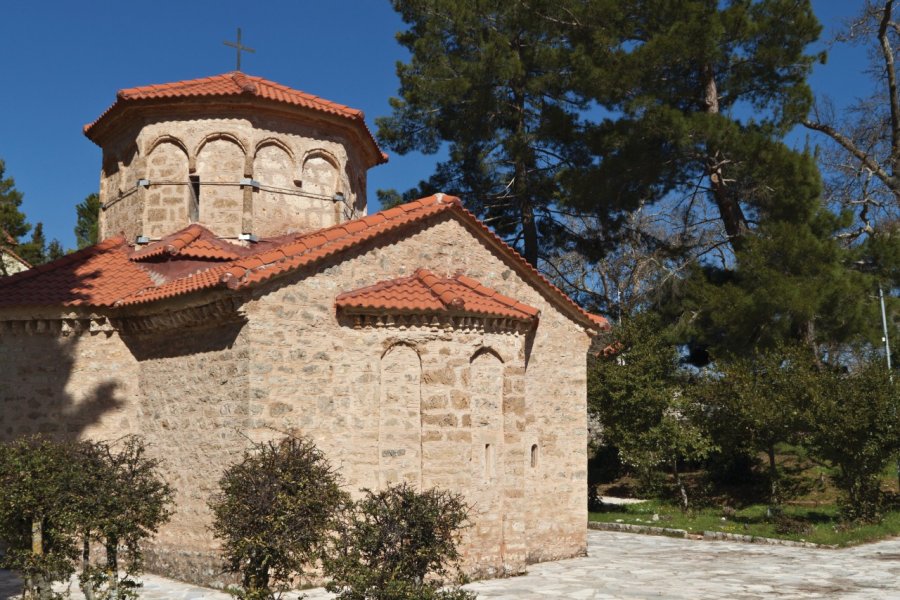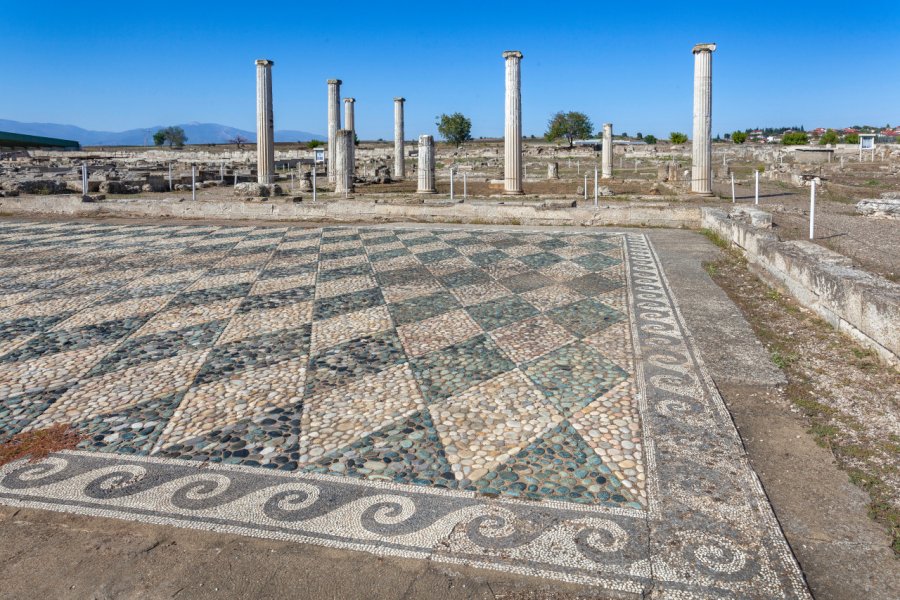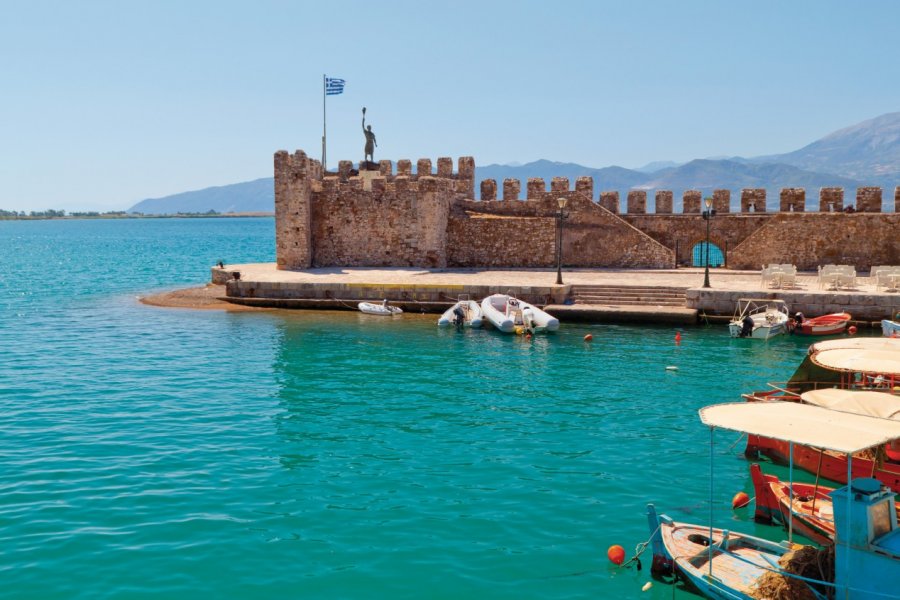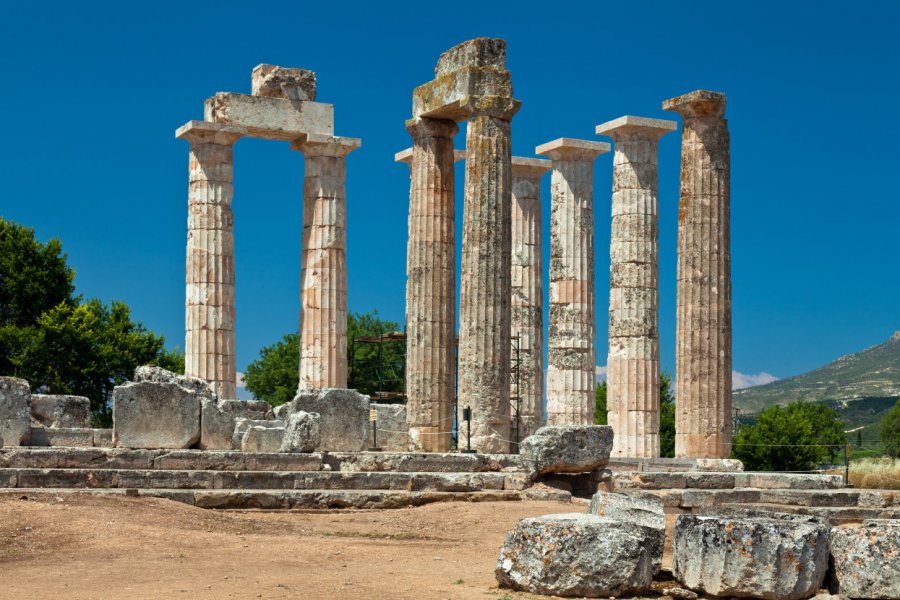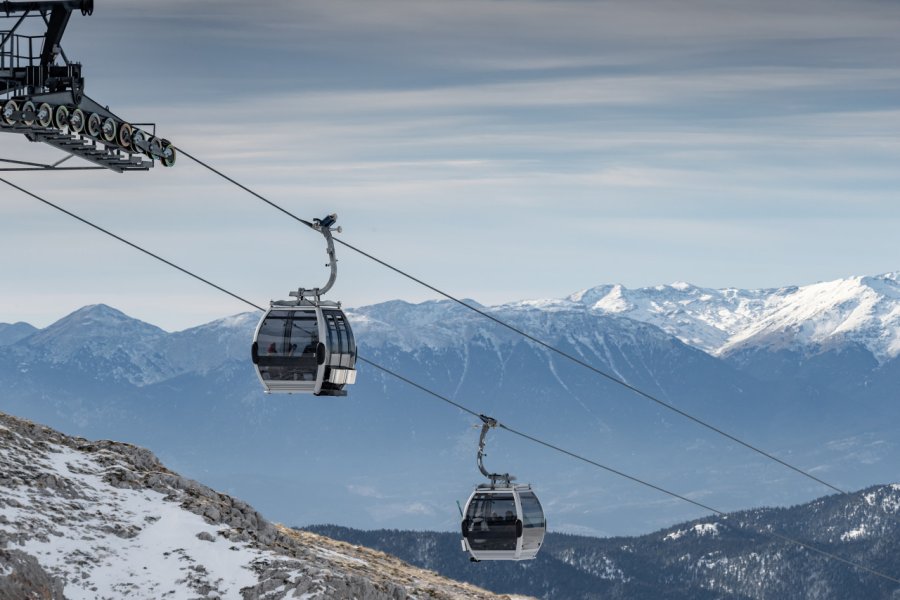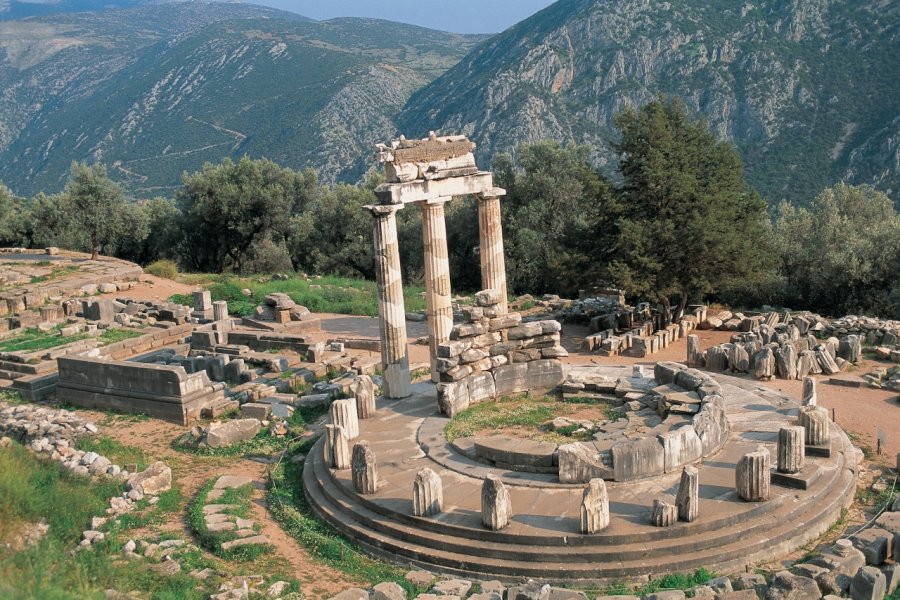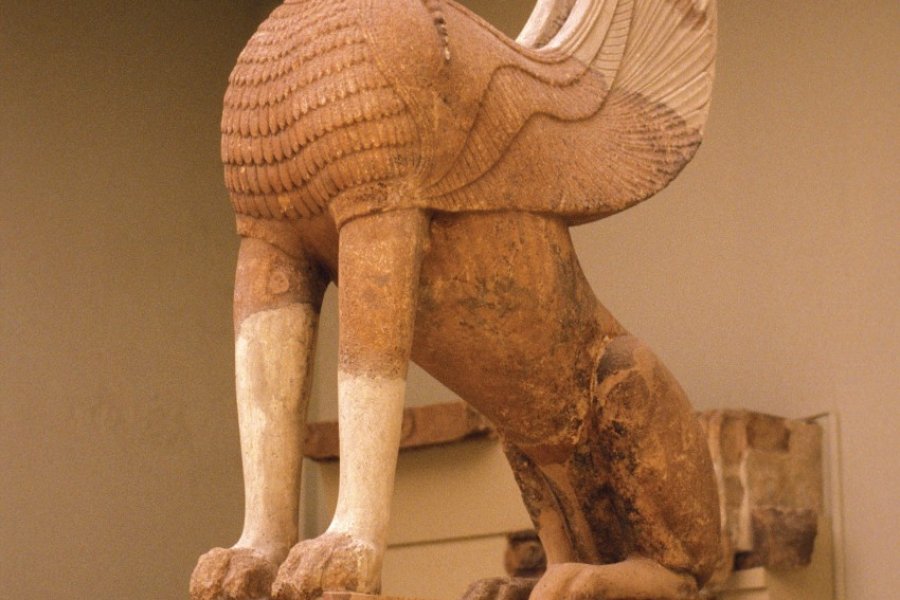Why go to Central Greece? The 10 good reasons to go Central Greece

His family and religious holidays
In Greece, any occasion is good for getting together (and eating well).

Between two continents
A link between Europe and Asia, Greece opens onto the Balkans and Turkey.

Nineteen Unesco sites
They are everywhere, from the Acropolis to the early Christian and Byzantine monuments of Thessaloniki.

Sunshine almost all year round
It is also called the "olive climate" with 3,000 hours of sunshine per year.

A mosaic of landscapes
Of course there is the beach, but the mountains cover 80% of the territory!

Open air mythology
Who doesn't know Zeus, Aphrodite and company? They live here, at the summit of Olympus..

A thousand-year-old history
Cradle of Western civilization, Greece has more than one story to tell us.

Hospitality despite the crisis
Despite their economic difficulties, the Greeks have retained this elegance (and their pride).

Mediterranean cuisine
How to resist its mezzes cooked under the patronage of its venerated olive oil?

A never-ending heritage
In 2017, rebetiko was listed as a Unesco intangible cultural heritage site!
What to visit Central Greece?

Interview: My Greece
with Nicolas Jury, author
Nicolas has been traveling the roads of Greece and the Balkans for fifteen years for the Petit Futé. Former journalist and press correspondent in Athens, he decided five years ago to settle in Thessaloniki, Greece, to continue exploring the country and the region. He loves the good restaurants of Athens as much as the villages of Thrace, the ancient sites as much as its Byzantine heritage. Let yourself be carried away!
See the video of the interviewGood to know to visit Central Greece
 Timetable
Timetable
In high season, the opening hours of the main sites and museums in Athens, Thessaloniki or Delphi are generally harmonized. Between April1 and October 31, they are open from 8am and close around 8pm. The rest of the year, they often close at 4pm. In any case, and especially in summer, we strongly recommend you to be at the opening to avoid the crowd. But in other places of visit, especially in smaller museums or places of worship, the opening hours are a regular source of anxiety for the authors of guidebooks on Greece: they change constantly, sometimes several times a year, and often, above all, they don't even really exist. One thing to remember: stay flexible! A museum that is closed during opening hours is common, especially in the smaller islands where the number of visitors is limited
So, take your chances with the indications given in this guide or call before you come: it will be safer! Off season, assume that the sites and museums are closed, but that if you find the good old man in the village, you may be given the keys... For the rest, the museums are closed on public holidays
 To be booked
To be booked
Online tickets. The Hellenic Organization for the Development of Cultural Resources (Hellenic Heritage) operates the official hhticket.gr to book and buy tickets online for 23 national museums and archaeological sites: the Acropolis of Athens, the National Archaeological Museum (Athens), the Museum of Byzantine Culture (Thessalonica), the archaeological site of Knossos (Crete), the archaeological site and museum of Delphi (Central Greece), the sites and museums of Vergina (Macedonia), the archaeological site of Akrotiri (Santorini)... This is an interesting way of organizing your visits, but the time slots offered are limited. Note that several unofficial private sites also offer online tickets to the Athens Acropolis at a premium price.
Visits on request. Some archaeological sites or small museums are only open on request. For each site where this is the case, we'll tell you what to do.
 Budget & Tips
Budget & Tips
Your museum budget will often be divided by two (like the price of many admissions) if you travel between November and the end of March. Otherwise, look out for the free days on the sites: March 6 (Melina Mercouri day), June 5 (Environment day), April 18 (Historical Monuments day), May 18 (Museums day), the last weekend in September (European Heritage day) and especially the first Sunday of each month, between November 1 and March 31.
Another interesting "plan": there is a grouped ticket (30 € in high season, otherwise 15 € the rest of the year), valid for 5 days, to visit the Acropolis and the Archaeological Park. This includes the theater of Dyonisos, the Ancient Agora (with the Hephaestheion and the museum of the Ancient Agora), the site of Keramikos (with the museum of Keramikos), the Roman Agora (with the library of Hadrian and the Tower of the Winds), the Olympeion and the archaeological site of Lykeion.
Finally, you should know that many major sites, with rather expensive tickets, are free for children under 18.
 Main events
Main events
Easter (in April or May, depending on the year) is undoubtedly the most striking and warmest popular Greek festival, which gives another dimension to many religious monuments that come alive with ceremonies. In Athens and Thessaloniki, you should also look out for the numerous festivals, especially of cinema.
 Guided tours
Guided tours
Greece and Athens in particular offer tours off the beaten track (see www.alternativeathens.com/fr/ for example). To benefit from the services of a private French-speaking guide, you can contact the Association of Qualified Guides (+30 210 32 20 090, www.tourist-guides.gr). It has 1500 members who work in all Greece and cover 28 languages... including French. Finally, we would like to add a special mention to Panagiotis Grigoriou, ethnologist and historian, who also proposes to discover Athens in a different way thanks to the association "La Grèce autrement" (https://greceautrement.fr).
 Smokers
Smokers
Smoking is of course prohibited in museums, churches, etc. Because of the risk of fire, smoking is also prohibited in some archaeological sites. However, many sites have a café where you can smoke on the outdoor terrace.
 Tourist traps
Tourist traps
The risks are reduced, because false guides, if they are controlled without accreditation, incur very heavy fines.
 What's very local
What's very local
In places of worship, proper dress is required. It also goes without saying that you must be respectful: don't touch anything, don't make any noise, respect areas that are off-limits to visitors... Some monasteries are very fussy about dress and only allow visitors to wear long dresses, for example. In this case, rudimentary dresses to slip over pants or skirts are usually offered at the entrance. In addition to the Athos monasteries, some other male Orthodox Christian complexes also prohibit women from visiting. Finally, in the very few mosques open to worship (mainly in Thrace), shoes must be removed on entry and women must cover their heads.
